Dudaryku: A Villiage Scene
$3.95
Order On Demand
-
Ships in 1 to 2 weeks
Details
Instruments
Ensembles
Genres
Composers
Publishers
Formats
Item Types
Levels
Usages
Description
2 soprano voice soli, tenor voice solo, SATB/SATB choir (divisi) unaccompanied - Advanced
SKU: EC.7276
Composed by Steven Sametz. Secular, 21st century. Choral score. E.C. Schirmer Publishing #7276. Published by E.C. Schirmer Publishing (EC.7276).ISBN 600313472763. UPC: 600313472763. Ukranian.
Dudaryku (The Piper) was introduced to me by my friend Natalka Pavlovsky as 'the Ukrainian version of Der Leiermann' (The Organ Grinder). Like Schubert’s famous Lied, this Ukrainian folksong hauntingly evokes the song of the town musician using the simple drone of his instrument. Dudaryku pays homage to the beloved piper who once played for the townspeople.
Several factors coalesced to create Dudaryku. I considered the many traditions of folksongs in western music: the simple folksong without accompaniment; arrangements (like the 19th century arrangement of Dudaryku by Leontovich); and the composition of new work in a folk style (exemplified in works of Brahms and Stephen Foster). The intersection of these traditions — using the old, the borrowed, and the new — intrigued me.
Dudaryku begins with a newly composed setting of the folksong text which laments the loss of the treasured town musician. There is a transition, referencing Leontovich’s arrangement of the Dudaryku folksong, and then a newly composed setting of another Ukrainian folksong, Oy Khodyla D’ivchyna (A Girl Went Walking), in which a girl summons the piper to play in order to ease her sorrows. Oy Khodyla D’ivchyna brings to mind the tunes the piper played for the Ukrainian villagers. Its final line about 'easing sorrows' provides a transition into the lament for the piper himself.
Dudaryku ends quietly, overlapping the music of the opening, the lament quoting Leontovich’s setting, and the girl’s simple folksong. - Steven Sametz
Duration: 9:00.
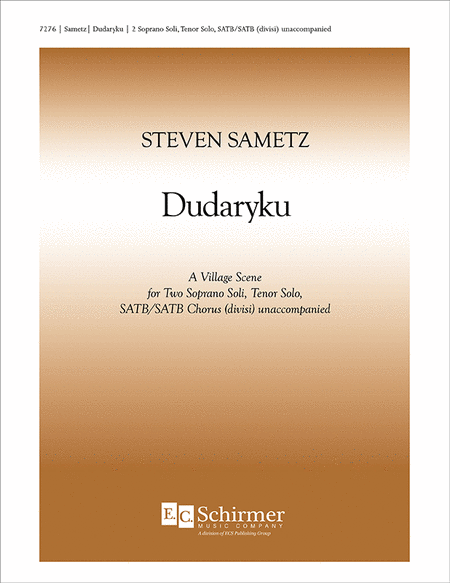

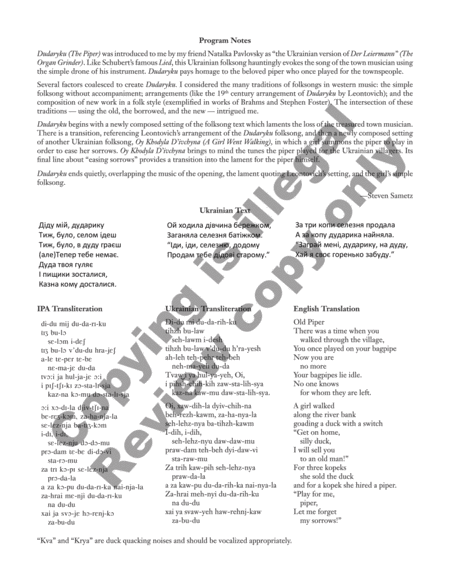
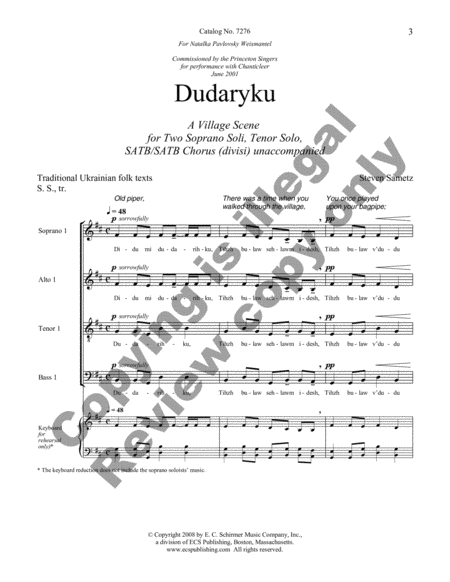
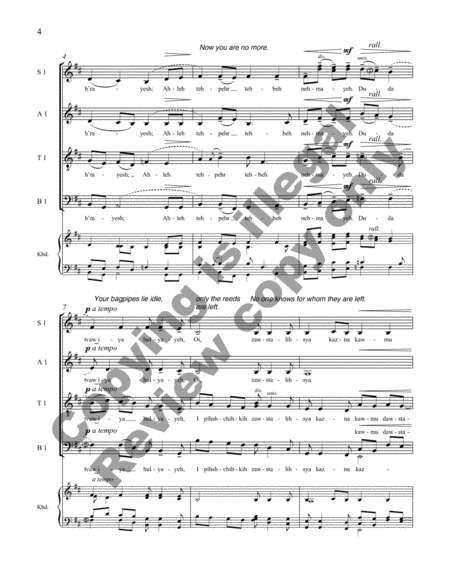
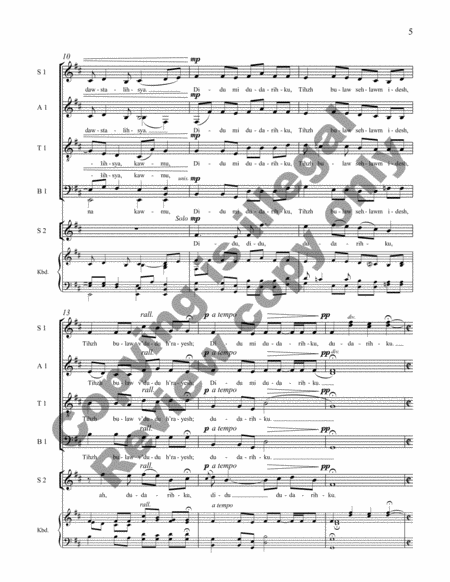
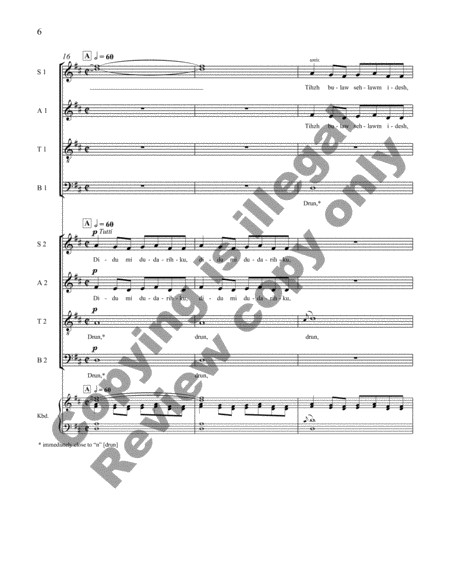
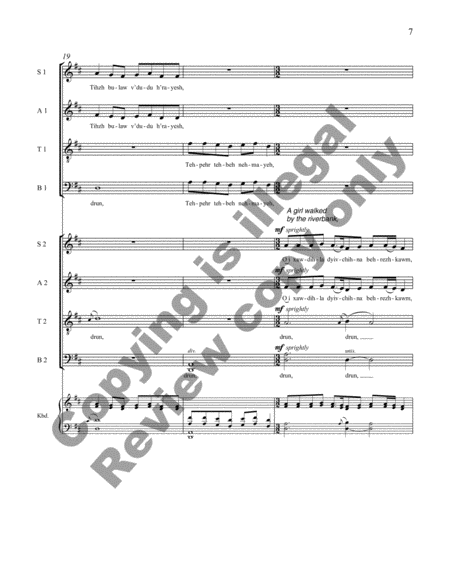
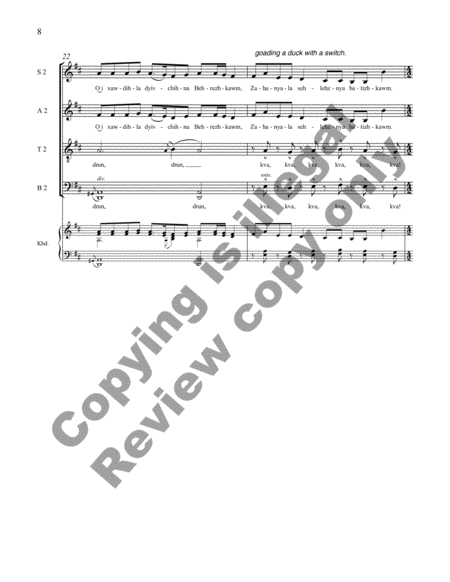
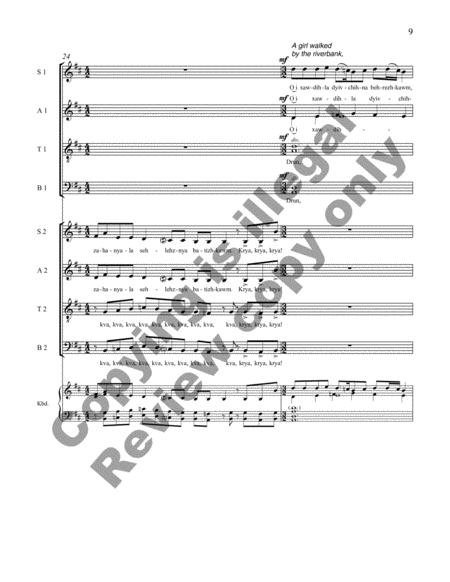
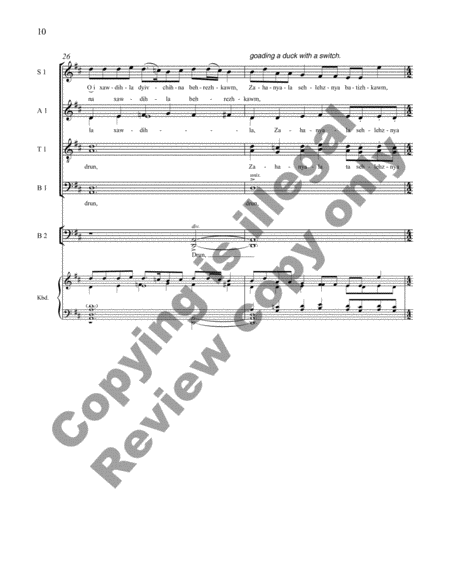
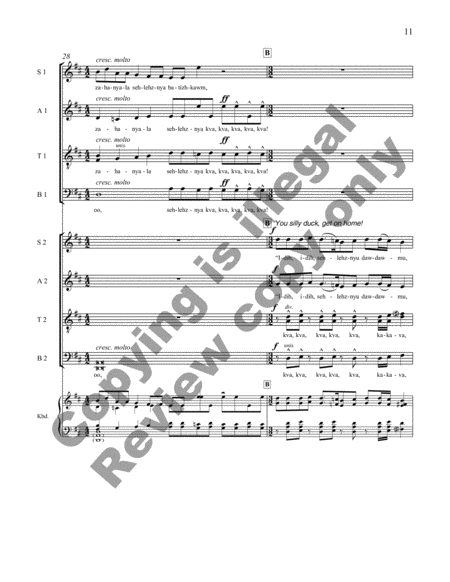
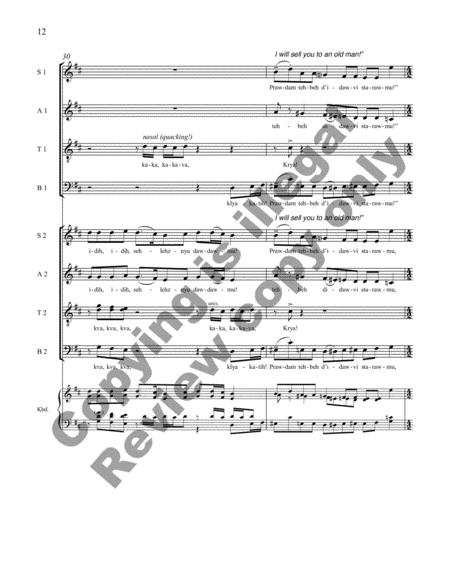
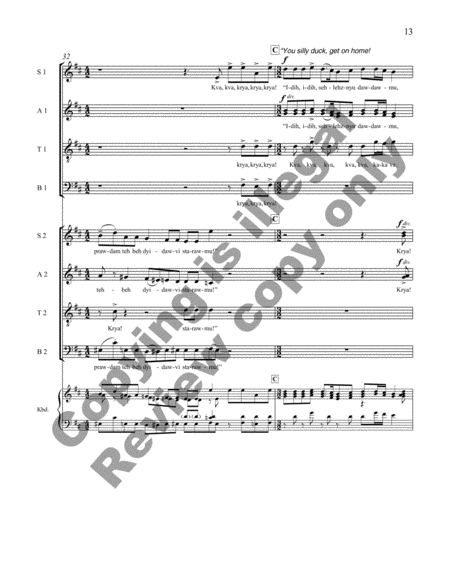
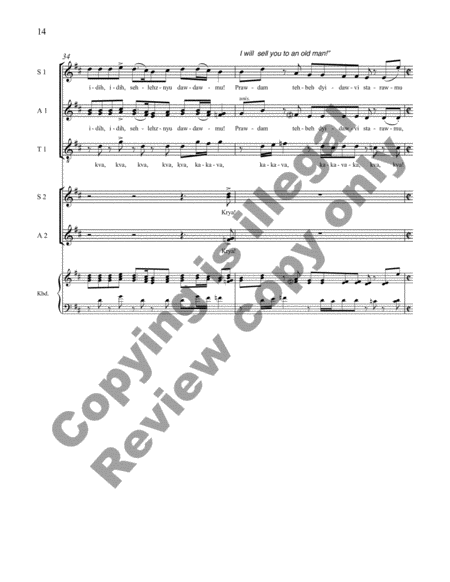

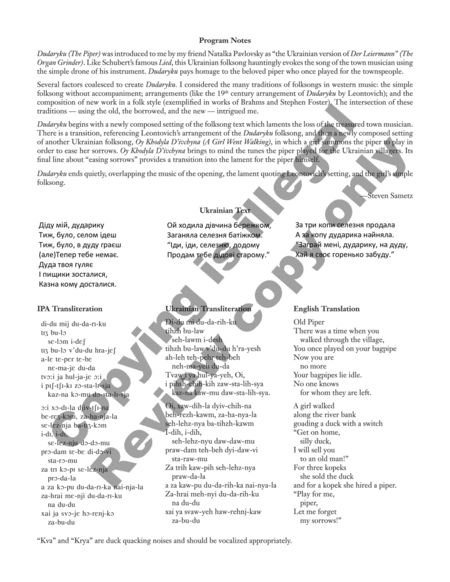
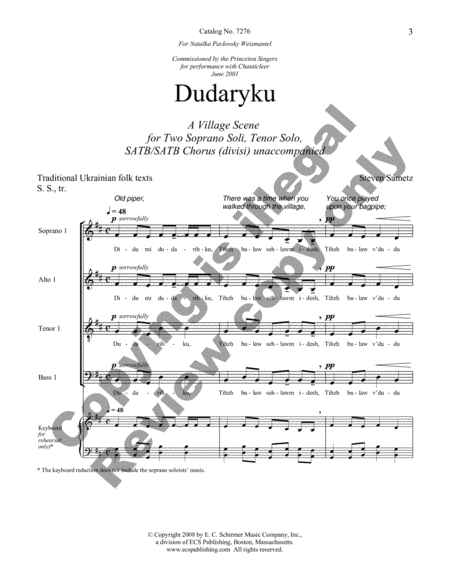
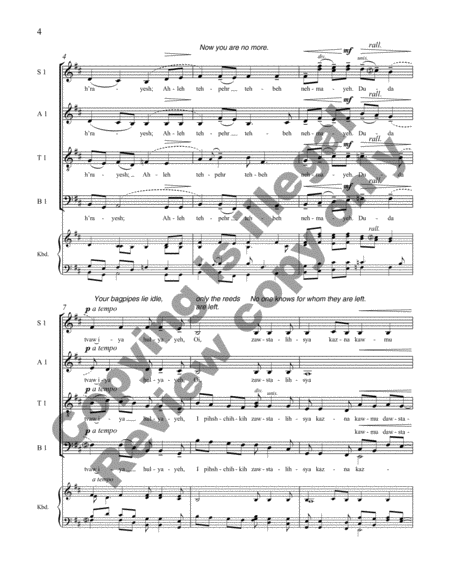
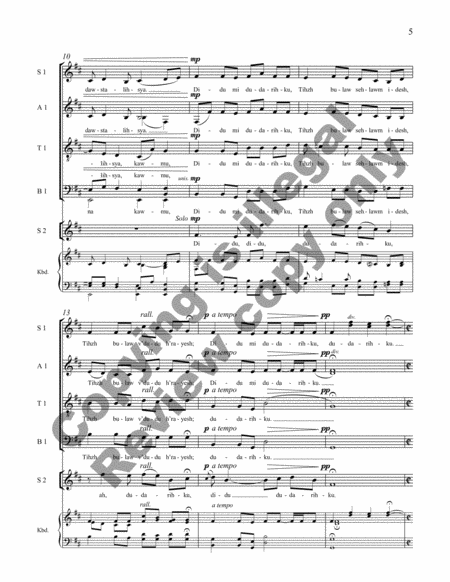
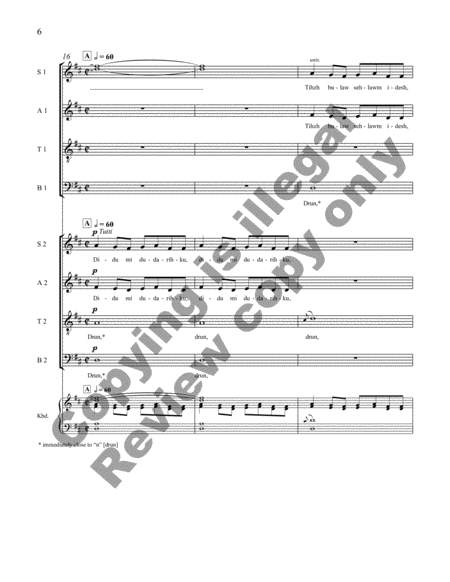
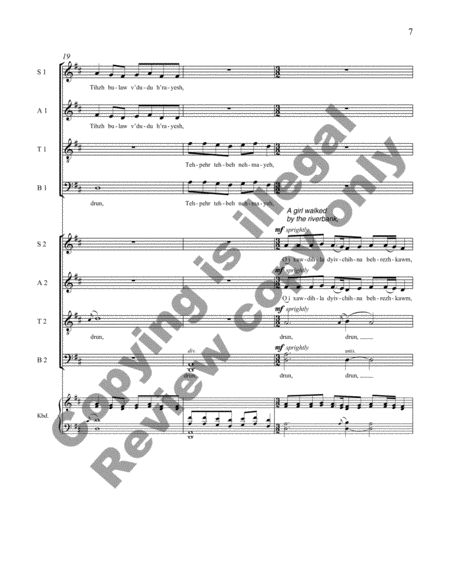
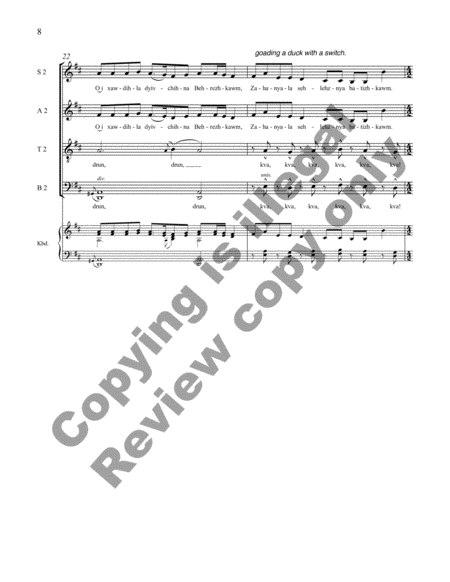
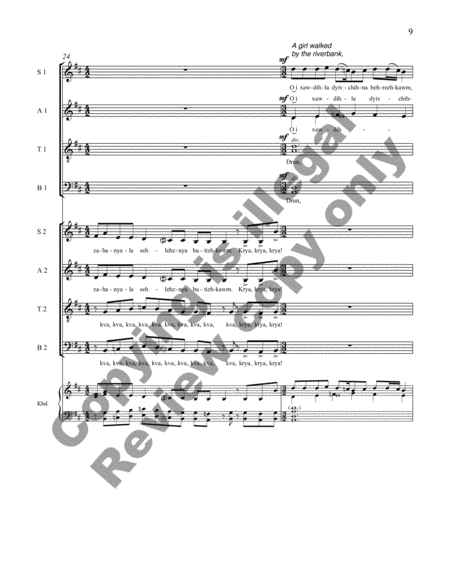
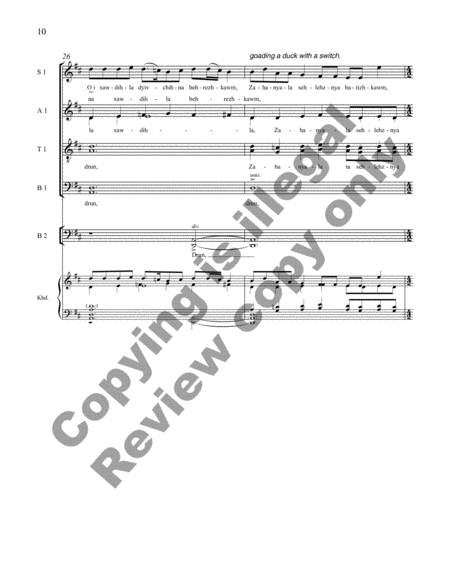
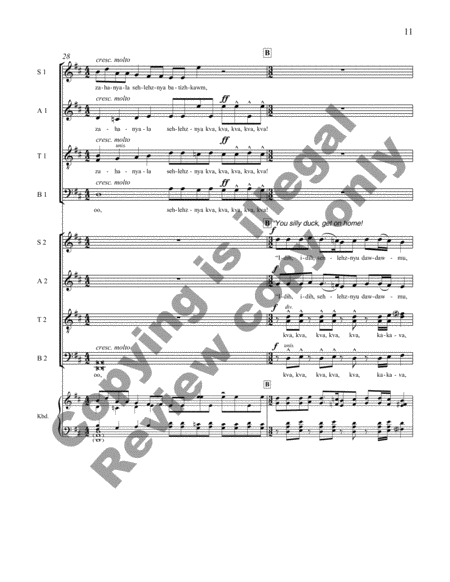
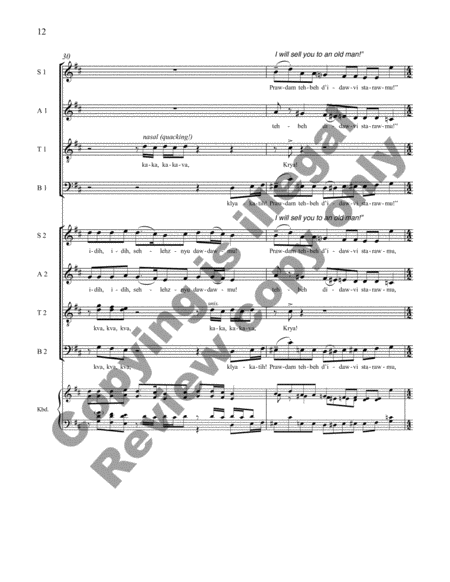
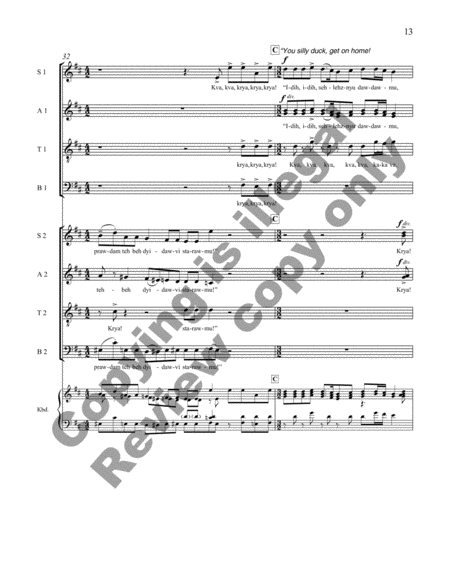
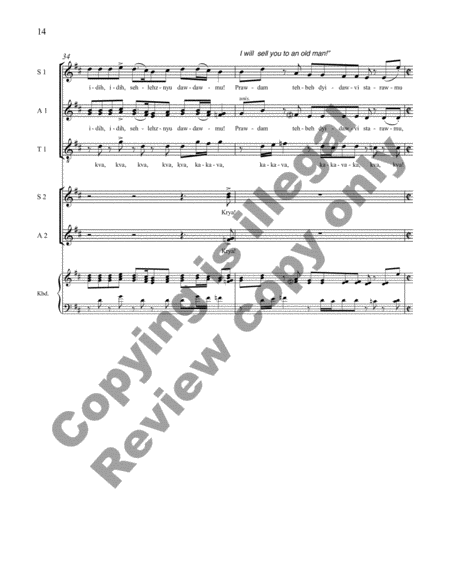
 Share
Share